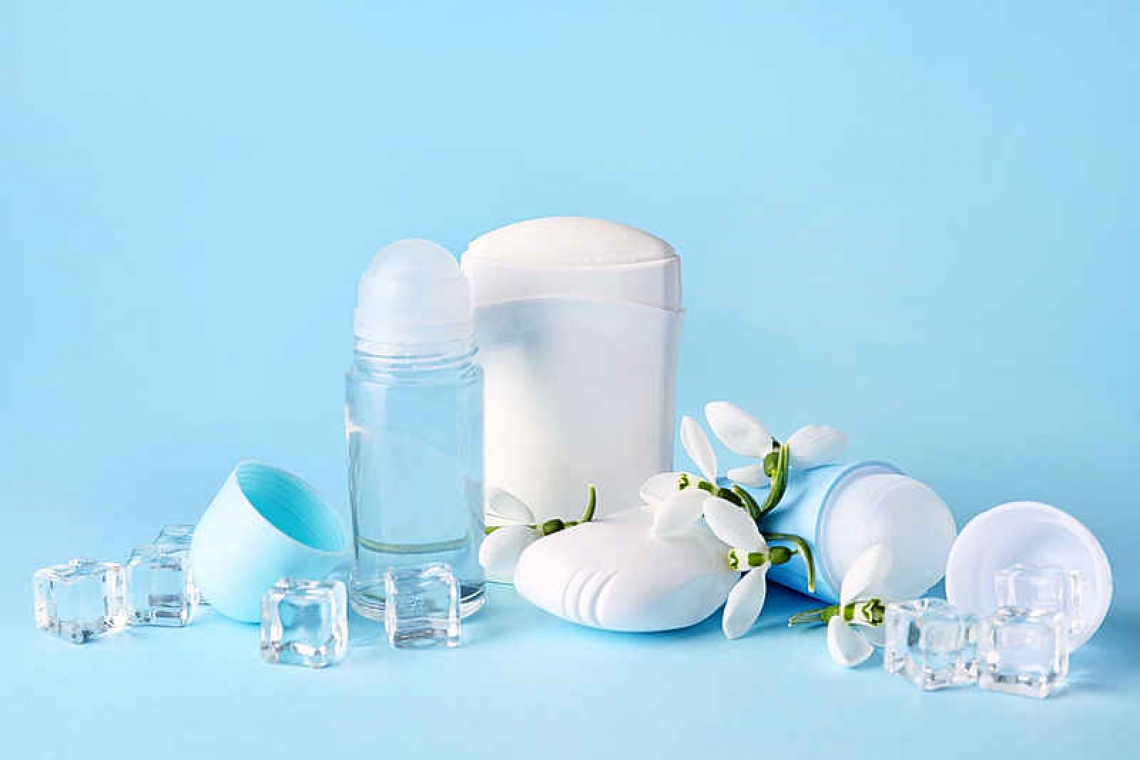by Health Desk, a project by Meedan
What our experts say
There is currently no strong scientific evidence that shows antiperspirants cause breast cancer.
Since antiperspirants tend to include aluminum and are applied near the breast tissue and lymph nodes, there has been great speculation about the potential for negative health impacts with consistent use.
However, few studies have focused on the direct link between antiperspirant use and cancer. Those that do have found no conclusive link between the two.
Many antiperspirants rely on aluminum to block sweat glands, as a way to reduce the amount of sweat released. Since aluminum is the active ingredient in many brands, some scientists have looked at the idea that aluminum may be absorbed into the skin through normal antiperspirant applications and razor cuts caused by shaving underarms.
One theory suggests that aluminum could cause changes in the estrogen (a hormone) receptors of breast cells. This may seem worrisome, because estrogen can promote the growth of cancerous and non-cancerous breast cells, but current studies have shown that it is not clear much aluminum can actually penetrate through the skin. One study found that only .012% of the aluminum chlorohydrate from antiperspirant application was absorbed. For reference, a person would usually absorb much more of this compound through the foods they eat than through antiperspirant use.
Another study found that women with breast cancer had no substantial difference in the amount of aluminum between the cancerous tissue and normal, non-cancerous tissues in their breasts.
According to the American Cancer Society, ingredients like aluminum most likely do not reach the body's lymph nodes and using antiperspirants does not cause toxins to be trapped within our bodies.
One note of caution, however: People with impaired kidney function are recommended to speak with their healthcare providers before using any products containing aluminum, even though the cancer risk is not the primary concern.
Parabens, also in anti-perspriants and other household products, are known to be absorbed through the skin but they have weak estrogen-like properties. We don't know if parabens are strong enough to cause changes in the breast cells. It is known that natural estrogens in the body are hundreds to thousands of times stronger than the estrogen-like properties in parabens. This is why the body's natural estrogens have been shown as a much likelier cause of breast cancer development than estrogen-like compounds from antiperspirants and other cosmetic products.
A small study found very small amounts of parabens in breast cancer samples. There was no link between the parabens as a cause of cancer, just that they were found in the breast tissue.
Similarly, 99% of people in a U.S. study were found to have some form of parabens in their urine; not just people with breast cancer.
The majority of people are exposed to parabens every day. Thus far, there have been no direct links between parabens and breast cancers.
Regardless, products containing parabens are required to list them as ingredients in most countries. However, most major antiperspirant brands do not contain parabens in 2021, unlike many other cosmetic and hygiene products.
Context and background
According to the American Cancer Society, in the early 1990s, an email chain began to circulate a false rumor that underarm antiperspirants can cause breast cancer. Thirty years later in 2021, that claim is still frequently cited on social media today.
The close physical proximity between where breast cancers are primarily developed in the upper outer part of the breast, the lymph nodes, and the armpit where antiperspirants are applied is a likely reason for the major concerns about breast cancer and ingredients found in these products.
Additional concerns around the estrogen-like properties of aluminum or potential toxicity of parabens have also led to consternation about antiperspirant ingredients.
In addition, some chemical toxins like triclosan, phthalates, and propylene glycol frequently found in deodorants can alarm some users but have been deemed to be safe by national regulatory groups.
So far, however, there has been no direct causal link found between antiperspirant use, its chemicals, and the development of cancer. Studies have also since shown that aluminum antiperspirants will not increase cancer treatment-related skin irritation risks.
Claims about chemicals interacting with DNA with can lead to the formation of breast cancer in tissues have also been widely disproven.
Resources
-Deodorant Use and Breast Cancer Risk (Epidemiology)
-Does the use of antiperspirants increase the risk of breast cancer? (Evidence-Based Practice)
-The relationship between use of aluminum-containing anti-perspirant and hair color with breast cancer (Journal of Family Medicine and Primary Care)
-Systematic review of potential health risks posed by pharmaceutical, occupational and consumer exposures to metallic and nanoscale aluminum, aluminum oxides, aluminum hydroxide and its soluble salts (Critical Reviews in Toxicology)
-Final Amended Report on the Safety Assessment of Methylparaben, Ethylparaben, Propylparaben, Isopropylparaben, Butylparaben, Isobutylparaben, and Benzylparaben as used in Cosmetic Products (International Journal of Toxicology)
-Concentrations of parabens in human breast tumours (Journal of Applied Toxicology)
-Underarm antiperspirants/deodorants and breast cancer (Breast Cancer Research)
-An earlier age of breast cancer diagnosis related to more frequent use of antiperspirants/deodorants and underarm shaving (European Journal of Cancer Prevention)
-Cancer causes: Popular myths about the causes of cancer (Mayo Clinic)
-Antiperspirants and Breast Cancer Risk (American Cancer Society)
-Antiperspirants/Deodorants and Breast Cancer (United States National Cancer Institute)
-Use of Underarm Cosmetic Products in Relation to Risk of Breast Cancer: A Case-Control Study (EBioMedicine)
-Is Deodorant Harmful for Your Health? (Penn Medicine)
-Can Deodorant Cause Breast Cancer? (Cleveland Clinic)
-Randomized Control Trial: Evaluating Aluminum-Based Antiperspirant Use, Axilla Skin Toxicity, and Reported Quality of Life in Women Receiving External Beam Radiotherapy for Treatment of Stage 0, I, and II Breast Cancer (Radiation Oncology)
This explainer was originally published on October 20, 2021 and updated on February 23, 2022. For more information visit health-desk.org.







